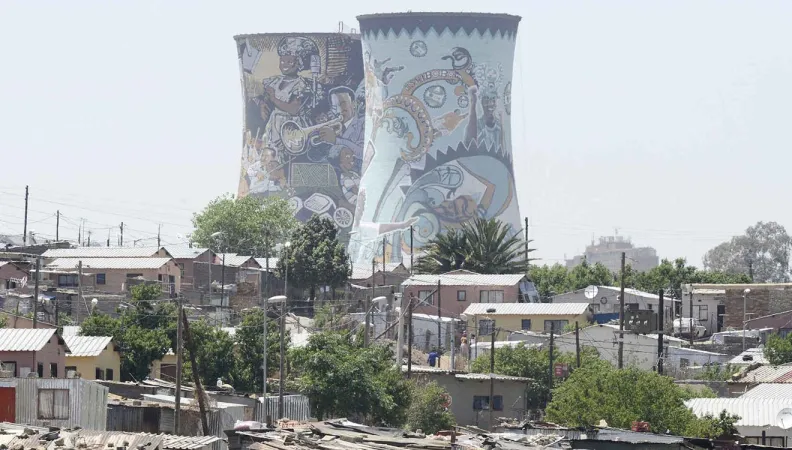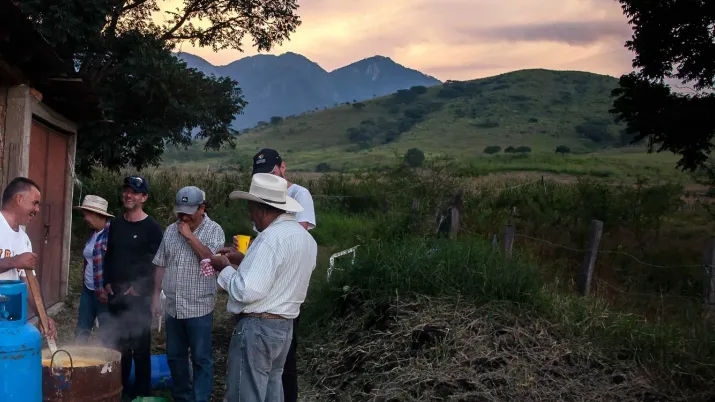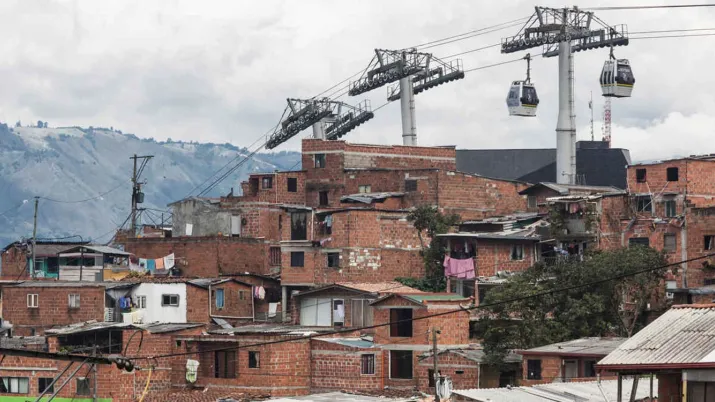Share the page
Extension of the Research Facility on Inequalities in South Africa
Published on

How can we support the reduction of socio-economic inequalities while addressing the challenges of the low carbon transition? The Extension of the EU-AFD Research Facility on Inequalities seeks to address this question in collaboration with local research centres and the South African government.
Context
Despite considerable efforts to improve the welfare of its citizens since its transition to democracy in the mid-1990s, South Africa remains one of the most unequal countries in the world. With a Gini coefficient of 0.63 in 2015, South Africa has many structural challenges inherited from its segregated history. Yet, the fight against inequality is deeply embedded in South African policy, from the 1994 Reconstruction and Development Programme to the current National Development Plan, which makes reducing inequality one of its two core objectives, alongside poverty eradication.
Research conducted under the first phase of the Research Facility on Inequalities has demonstrated the prevalence of spatial inequalities and the important role played by the labour market in perpetuating the polarization of society: low standards of living, youth unemployment, limited access to quality education, vocational training and employment, etc. These phenomena have also been greatly amplified by the Covid-19 pandemic and could be even further by the imperatives of a low-carbon economy.
READ ALSO
Goals
In order to address these multidimensional issues, a program to support the development of public policies that can have an impact in terms of reducing inequalities is implemented as part of the Extension of the EU-AFD Research Facility on Inequalities .
Two intervention priorities have been identified in partnership with local research centers and in close collaboration with the South African government:
- Advance the evidence base and understanding of the stimulus effects of income transfer programmes in the South African context, focusing on the impacts of social grants and of public employment programmes. Four research projects are being developed analyzing the externalities of Covid-19 recovery policy.
- Develop an interactive, online Community Explorer that would allow researchers, policy-makers and civil society members to build a stronger understanding of well-being at the community (or main area) level in South Africa. This socio-economic observatory will be piloted at the level of a municipality in order to develop analyses of the local labor market and to support the municipality in its economic diversification strategy in response to the challenges of exiting coal. This type of observatory could be extended in the future and used as a tool for planning and analyzing the impacts of public policies on territories and populations.
Projects
In order to identify the externalities of the Covid-19 stimulus policy, the Extension of the EU-AFD Research Facility on Inequalities, in partnership with local research centers and the South African government, is conducting five research projects on:
This study qualitatively analyzes the interactions and impacts of the Social Relief of Distress (SRD), a social assistance grant directed to many informal workers in times of Covid-19, as well as the broader stimulus package, on local economies.
This study quantitatively investigates whether the Covid-19 grant directed to unemployed people acts as a source of labor market recovery by leading to increased investment in productive labor market activities.
The study aims to contribute to the body of knowledge on the impact of social protection and employment stimulus measures on the formal and informal economies, by .The purpose of the study is to explore exploring shifts in purchasing behaviour between 2019 and 2022 among informal and small traders.
The objective of this study is to characterize the spending patterns of stimulus recipients and then to examine how this spending is likely to stimulate economic activity in industries further up the product supply chain.
The objective of this study is to produce motivated recommendations on how the SRD should be designed going forward into the longer term, in order to maximize the impact of the grant on employment outcomes and to ensure it effectively reduces poverty, while maintaining its cost to an acceptable level.
Besides the analysis of the recovery policy, the Extension of the Facility is focused on producing analyses and developping tools to better assess local socioeconomic contexts:
A Community Explorer is being developed, expanding the current Youth Explorer and adding labor market demand indicators. Its objective is to provide an understanding of the workings of geographic areas as economic and social systems, and to promote the construction of an integrated and effective approach to policy and planning that would ultimately contribute to social improvement for all.
A skills ecosystem mapping in the district of Nkangala, in order to inform targeted interventions aimed at reducing inequality in access to employment and economic opportunities, since this district concentrates the coal-fired power plants that will be closed as a result of just transition policies.
A study on social protection and the just transition, to support the South African government in preparing the transition of workers from the coal sector to a low-carbon economy.
Events
Several events were organized as part of the extension of the Facility:
The Presidential Youth Employment Initiative – Basic Education Employment Initiative (PYEI-BEEI) programme, which targets 18-35 year-olds eligible as education assistants or general school assistants, is the largest component of South Africa’s Presidential Employment Stimulus (PES), announced in 2020 as one of the support measures against the impact of the COVID-19 pandemic.
This webinar, with Anda David (AFD), Ihsaan Bassier (UCT-SALDRU) and Maikel Lieuw-Kie-Song (ILO), presented the research paper Stimulus Effects of a Large Public Employment Programme in South Africa.
This study demonstrates how the PYEI-BEEI initiative is having an impact on economic growth through its indirect positive effects on non-programme employment and wages.
Click here to access the replay of the event.
AFD, the EU Delegation in South Africa and Southern Africa Labour and Development Research Unit (SALDRU) hosted a public event on the stimulus effects of the Presidential Youth Employment Initiative – Basic Education Employment Initiative (PYEI-BEEI) at the University of Cape Town.
The PYEI-BEEI programme, which targets 18-35 year-olds eligible as education assistants or general school assistants, is the largest component of South Africa’s Presidential Employment Stimulus (PES), announced in 2020 as one of the support measures against the impact of the COVID-19 pandemic.
The research was presented by Joshua Budlender (one of the project's researchers) and complemented by a presentation on the direct returns to learners in the classroom from the PES interns in the schools. Also under consideration is, as the PYEI-BEEI researchers conclude, whether other public spending (such as social grants) may have similar initial stimulus effects.
Click here to watch the replay of the event.
An interview with Josh Budlender is also available here.
This conference is a collaboration between the South African Presidency, the EU, AFD and UCT (through ACEIR). It brought together the political, academic and international development spheres to discuss how the trade-offs between inequality and environmental change are shaping country’s development pathways, focusing on how to build consensus and make progress on the political front. Particular attention was paid to South Africa's just transition.
- DAY 1 of the conference showcased research on the strategic dilemmas that appear when designing long-term development trajectories that are both ecologically and socially sustainable.
- DAY 2 engaged high-level government officials and practitioners from especially the Global South to deliberate on specific and meaningful concessions aimed at shaping policy solutions.
- You can find the conference replays here.
Organized jointly with the EU, the University of Cape Town and the South African Presidency, this stakeholder engagement has been the occasion to discuss during two days on the externalities of the economic stimulus programme implemented in South Africa. Building on the results of four research programs, the event was an opportunity to share experiences and exchange peer-to-peer good practices with regards to social policies.
The details of the research presented can be found here below:
• The local economic development effects of income transfers.
• Can cash transfers to the unemployed support economic activity ? Evidence from South Africa.
• Measuring stimulus effects around Stock Road in Philippi on the Western Cape.
• Evaluation of local stimulus effects: Jobs and grants programmes.
The replay of the two sessions of the stakeholder engagement is also available here.
Other countries supported by the Extension of the Research Facility on Inequalities
Event
Bridging Divides: Evidence-Based Policies for Inequality Reduction and Sustainable Development
International conference of the EU-AFD Research Facility on Inequalities



